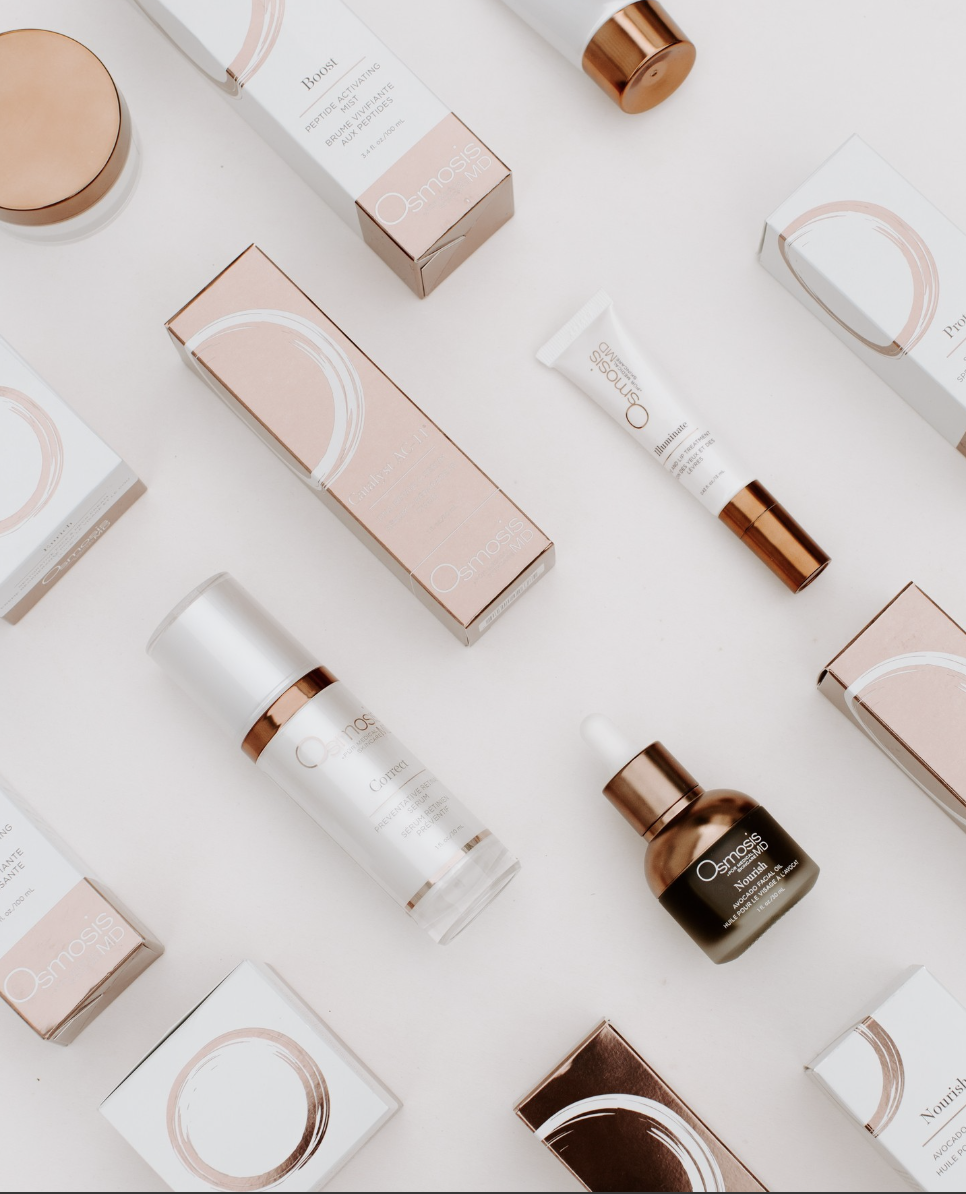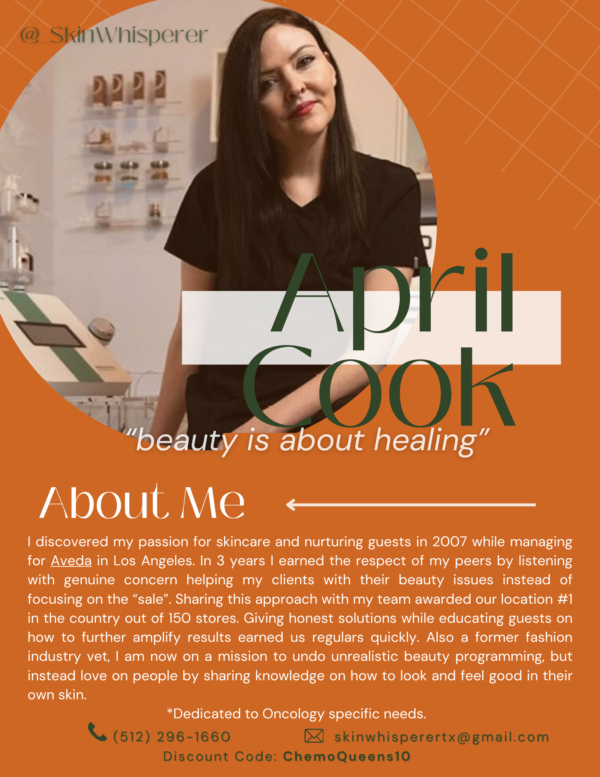PARTNERSHIPS
CHEMO QUEENS
EXCLUSIVE PARTNERSHIPS
When we began the conversation about products and brands, we knew we wanted to be specific to those going through chemotherapy and bring you THE VERY BEST on the market. With exclusivity in mind, only brands and products that we have personally used before, during, and after treatments will go up! We have also consulted extensively with others who have undergone treatment to curate this list of resources.


Introducing April Cook
A non-invasive esthetician with a holistic approach
While Blythe was undergoing treatment, April introduced her to Osmosis Beauty, which became a game-changer in her skincare routine. The best part? Osmosis has an entire oncology-friendly skincare line!
April has a wealth of experience working with people undergoing cancer treatment and is now offering an exclusive Chemo Queen client consultation, available both in person and virtually. She’ll help you tailor your skincare routine to meet your needs before, during, and after treatment.
Want to get started? Just email April and mention “ChemoQueens10” for 10% off all Osmosis Beauty products and $25 off your first one-on-one consultation with April.

WHAT ABOUT MY HAIR?
Hair loss is a common side effect of chemotherapy, and it can be a significant emotional challenge for many individuals. At Chemo Queens, we understand the impact that changes in appearance can have on self-esteem and confidence. Here are some tips and resources to help you cope with hair loss during chemotherapy:
Understanding Hair Loss:
Chemotherapy drugs work by targeting rapidly dividing cells, which includes both cancer cells and hair follicles. This can lead to hair thinning or complete hair loss, including scalp hair, eyebrows, eyelashes, and body hair. Hair loss typically begins within a few weeks of starting treatment and may continue throughout the duration of chemotherapy.
Embracing Change:
While losing your hair can be difficult, it’s important to remember that it’s a temporary side effect of treatment. Many individuals find comfort in embracing the change and viewing it as a symbol of strength and resilience in their cancer journey. Experimenting with hats, scarves, wigs, or other head coverings can be a fun way to express yourself and maintain confidence during this time.
Scalp Care:
Taking care of your scalp can help minimize discomfort and promote healthy regrowth once chemotherapy is completed. Use gentle, moisturizing shampoos and avoid harsh chemicals or styling products that could further irritate your scalp. Consider using a soft-bristled brush or comb to gently massage your scalp and improve circulation.
Wig Options:
Wigs are a popular option for individuals experiencing hair loss during chemotherapy. There are many different styles, colors, and materials available to suit your preferences and budget. Look for wigs made from breathable, lightweight materials that mimic the look and feel of natural hair. Some cancer centers and nonprofit organizations may offer free or low-cost wig programs for patients in need.
Eyebrow and Eyelash Care:
In addition to scalp hair loss, chemotherapy can also cause thinning or loss of eyebrows and eyelashes. You can use makeup techniques to fill in sparse brows or enhance your eyelashes with mascara or false eyelashes. Alternatively, there are specialized products like eyebrow stencils or eyelash extensions designed specifically for individuals undergoing cancer treatment.
Support and Community:
You are not alone in your experience with hair loss during chemotherapy. Reach out to friends, family, or support groups for encouragement and understanding. Connecting with others who are going through similar challenges can provide valuable emotional support and practical advice for coping with hair loss and other side effects of treatment.
Re-Growth and Recovery:
After completing chemotherapy, most individuals will experience regrowth of their hair within a few months. Your new hair may have a different texture or color than before, but it’s a positive sign of healing and renewal. Be patient with the regrowth process and focus on self-care as you transition back to a more normal routine.








